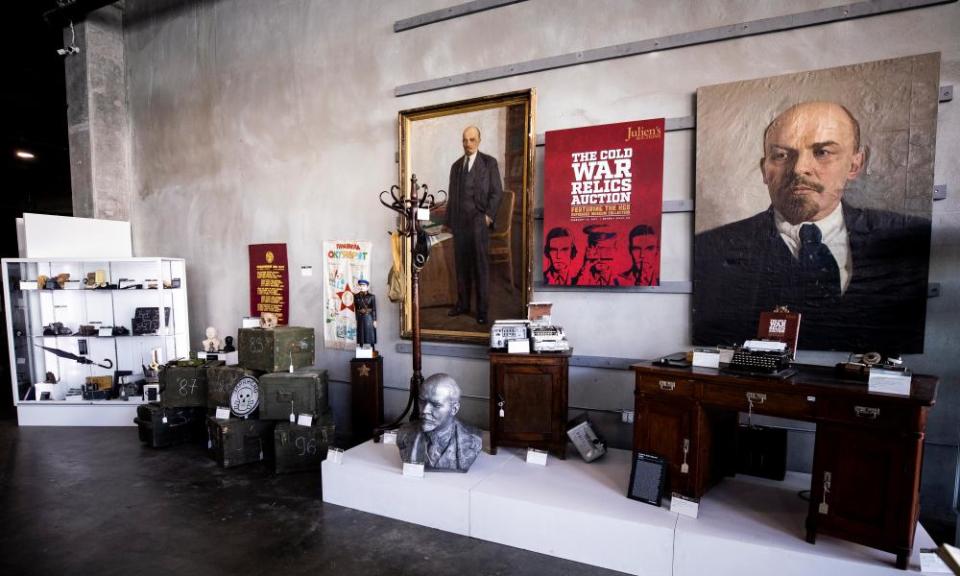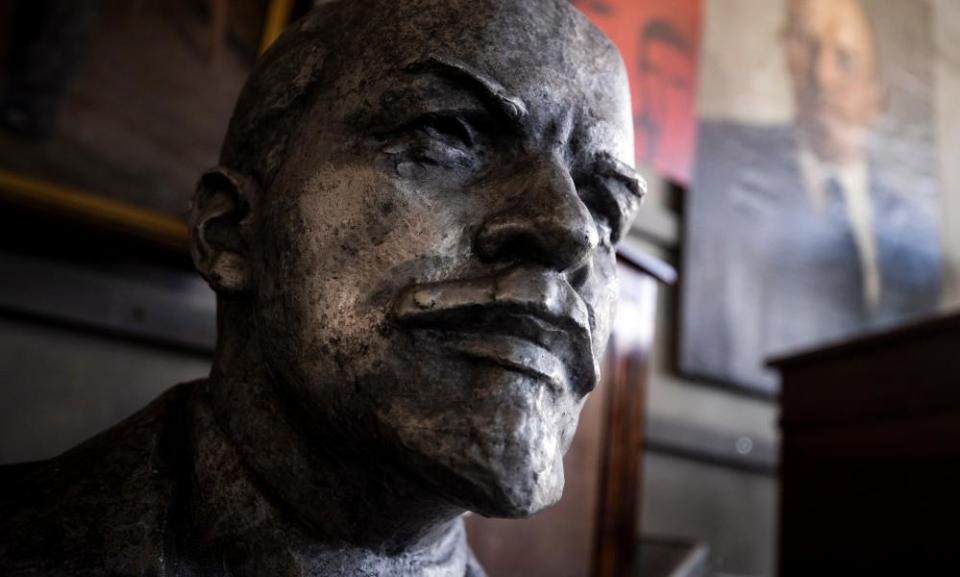Brexiters buy KGB artefacts for ‘museum of communist terror’

It depicts the Russian revolutionary leader in characteristically serious mood, staring across Red Square, perhaps, and rendered with more than a touch of kitsch.
But while a Soviet-era oil painting of Vladimir Lenin, which sold for nearly $2,000 at auction in the US, might capture the man as many know him, its buyers are not exactly Bolsheviks.
They are a group of fervent Brexiters who aim to establish a “museum of communist terror” in the UK, and the Lenin portrait is among a range of Soviet paraphernalia they acquired for more than £24,000.
Other items they snapped up included a KGB prison door, handcuffs, covert surveillance equipment and a Soviet executioner’s thermometer, which was plunged into victims’ stomachs to determine if they had been killed.

“These purchases represent a step-change in the rarity and interest of the artefacts that have been acquired so far,” supporters of the planned museum were told by its director, James Bartholomew, as he thanked them for financing “a unique opportunity” to buy items from the KGB Espionage Museum in New York, which is closing due to Covid-19.
Along with Bartholomew, who is a former election candidate for the Brexit party, the museum’s trustees include the MP and former minister Owen Patterson, the former Conservative MEP Daniel Hannan, the Tory activist Tim Montgomerie, the Conservative peer Nigel Vinson and the Vote Leave digital strategist, Thomas Borwick. Its honorary president is Matthew Ridley, the Tory peer and former Northern Rock chair.
Bartholomew said the shared Brexiter backgrounds and the Vote Leave connection of those involved was “a complete coincidence”.
He added: “It’s probably not a coincidence that they are on the right but it is a coincidence that they are Vote Leave. It’s all a question of time. If only I could devote a week towards finding prominent leftwing figures to come onboard then I would do it.”

The purchases were made jointly with another enterprise, the Foundation for the History of Totalitarianism, of which Bartholomew is a director, and which has recently registered in Britain as a charity. It aims “to advance the education of the general public in the subject of totalitarianism”.
Initiatives of the foundation include a scheme being supported by the Polish government: a school history essay prize for sixth-form students who were invited to write about Witold Pilecki, the Polish resistance leader who volunteered to infiltrate Auschwitz. An awards ceremony in which the first prize is £1,500 is being hosted at the Polish embassy in London.
Bartholomew indicated, meanwhile, that the goal of establishing “a full-size museum” in London was some way off and that the project was largely dependent on individual donations for now, although organisers did not rule out applying to official sources.
The plan’s origins date back to 2017, when Bartholomew wrote in the Daily Telegraph that there was the need for “a permanent way of informing the next generation and every succeeding generation of what happened under communism”.
“If I can reach a few people who feel ‘I have learned something and understand it a bit better’ and it helps keep British people in favour of a liberal democracy, then I will be satisfied,” he added.
Since then the artefacts that have been steadily acquired include a chess set made by a prisoner in the gulag and an East German Trabant car.
Bartholomew has travelled widely, interviewing former prisoners of communist regimes. A video on the museum’s website records him telling one audience in Australia that the history of communism was “at best, grey-washed” in the schools of English-speaking countries and at worst, not taught at all.
Ignorance about communism on the part of young British people, he added, was the fault of teachers “who, if not Marxist themselves, are leftwing and think that communism may be an extension of what they think” while their textbooks were written by communists.

 Yahoo Finance
Yahoo Finance 